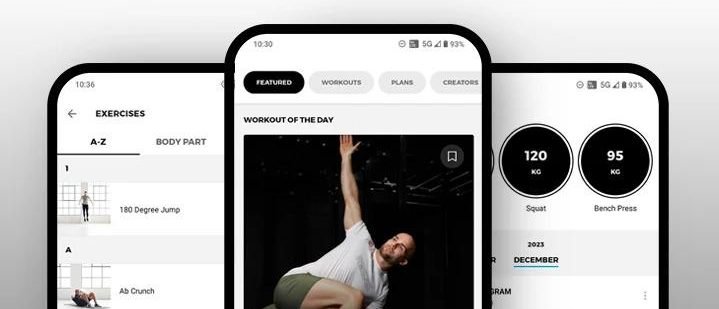With increased awareness of how our sedentary lifestyles are impacting us and being forced to stay indoors since 2020, many people are changing their fitness goals and habits. I started looking to fitness tracker apps to check it out. There is ample evidence that the scope of the fitness app industry is expanding.
according to Data from Statista, the global fitness apps market is expected to reach USD 6.68 billion in 2024. The market size is expected to be USD 10.04 billion by 2028, with an annual growth rate of 9.99%.
The integration of artificial intelligence into the fitness field is also starting to change the benchmarks for what future personal fitness should look like.
trends like biohacking Fitness wearables are also on the rise, and new technologies such as robotic personal trainers are being tested in this space.
Gamification, which brings an element of fun to tasks that might otherwise feel mundane if they're not a habit, such as working out, is also taking the fitness world by storm with popular exercise tracker apps such as: flex and strava.
But when it comes to spending time at the gym, many people still keep a mental record of their workouts or stick to reliable paper-and-pen tracking methods.
However, this causes people to miss out on the best ways to progress effectively. A good workout must be properly tracked for people to make consistent and sustainable fitness progress.
Tracking is more important than ever. To help you understand who is tracking you correctly, here are some of the best fitness tracker apps that are poised to leverage their AI capabilities to take over the market and stay at the helm of new industry trends in 2024 .
flex
The Flex essentially functions as a pocket-sized personal trainer. One of the main reasons people fail when trying to stick to a good workout routine or fitness habit is a lack of motivation.
This app completely tackles the motivation problem people have at the gym by turning fitness into a game. The Flex social sharing community has a gym-like atmosphere that keeps even the least enthusiastic users engaged.
The app recently rolled out a new leaderboard feature, allowing users to compete among users of similar age, weight, and gender to build positive training habits while introducing an element of competition.
Although it's aimed at weightlifters, Flex also offers great tracking for home workouts, stretching routines, and more.
Although it's newer than heavy hitters like Strava, Flex's leaderboard feature makes it stand out as a must-watch among the best fitness tracker apps of 2024.
of flex blog We also cover everything from fitness industry trends to scientific concepts and techniques for optimizing your workouts. Using these as a guide, users can gain insight into how this makes complex exercise techniques fully accessible, even for fitness novices.
Flex is available for just $9.99 or $59.99 per month, making it one of the most cost-effective options in the entire industry.
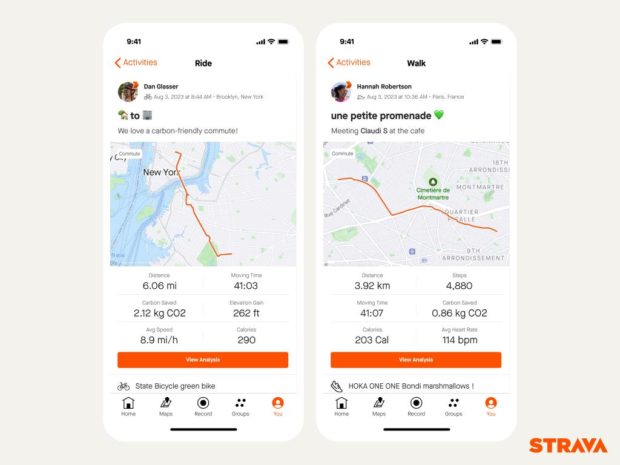
strava
This momentum makes Strava one of the most established competitors in the fitness industry.
Strave enables simple and social route tracking, allowing users to network with others, plan routes, and set records within their community.
The app lives up to its claims of helping runners and cyclists track routes, discover new local training trails, and build a community.
While Strava does offer community features, it has fewer privacy options than other apps for users who don't want to share their workouts too much.
For social athletes who value community, Strava remains one of the best options, but if you want to work out privately, there are other apps that specialize in solo workouts.
Strava retails for $11.99 per month or $79.99 per year.
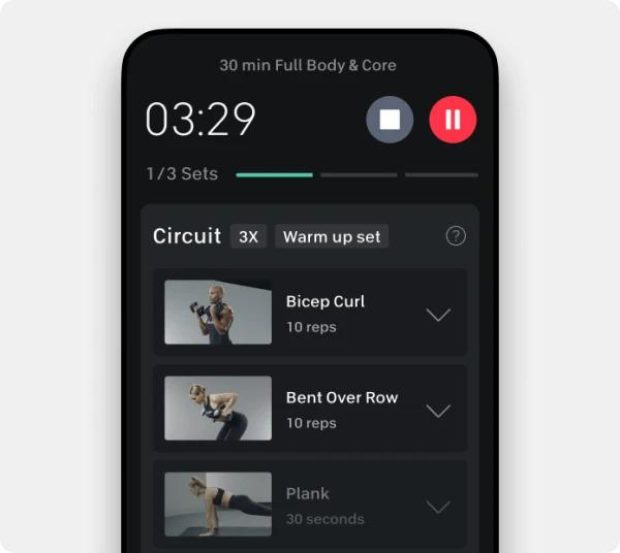
The Peloton app offers a wide range of classes for different types of exercise. Here you can engage in yoga, cardio, HIIT training, and even boxing.
Where Peloton loses some points is in pricing. The app specifies that you don't need a bike or rowing machine to participate, but there will be a cost if you want to add these devices.
The app also has a free version, but paid upgrades involve a significant financial jump.This app just Introducing new pricingthe Peloton App One version costs $129 per year, and Peloton App Plus costs $240.
You pay for quality, but these premium prices set the app at one of the highest retail costs on the market.
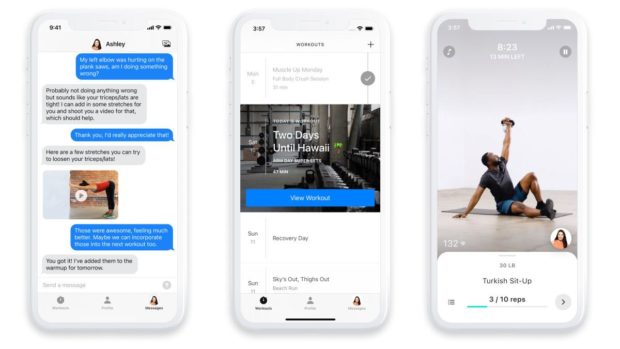
With its in-person touch, Future is one of the best personalized coaching apps in the digital fitness market in 2024.
Here you can connect with a coach through the app and receive tailored advice from an experienced coach. For those who struggle with accountability, a one-on-one coaching approach is a style that is likely to resonate.
Future combines AI workout plan design with a human element to capture a middle ground that will please those who need an extra push.
Coaches can contact users to see how they are feeling during their fitness program and assess whether plans need to be changed.
Future is considerably more expensive than most apps on the market. The hefty price tag of $199 per month may put some people off, but for those who want to maximize their efforts with expert guidance, Future is worth the price of admission.
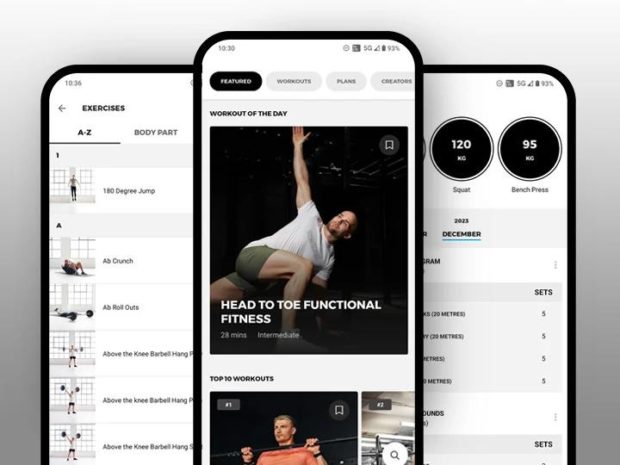
From the makers of Gymshark clothing, the Gymshark Training app is a solid choice for fitness beginners.
At the moment, the app is completely free and is an accessible option from a cost perspective. That being said, there are some fixes that make the app more user-friendly.
Gymshark does not have a calendar feature that users can use to compare and contrast workout data over time. This app is a step back when compared to apps like Flex, which offer robust calendar data.
However, the developers note that the Gymshark app is still under development. As one of the most recognizable brands in the fitness fashion industry, Gymshark has solidified its reputation as an innovator, with promising app growth expected in 2024.
Choosing the best fitness tracker app
With all these benefits available, choosing the perfect app can be difficult. Fortunately, many of these fitness tracker options have trial periods that allow users to evaluate their relative value.
When choosing among the few apps on the market today, consider your budget, fitness goals, and time constraints.
These “big three” factors can serve as a guide to determining what type of fitness plan you can reasonably follow.
the future of fitness
Artificial intelligence will completely disrupt the fitness tracker market in 2024. As wearables, gamified user experiences, and full personalization take over, competing apps must offer social-first service to keep users coming back.
What apps like Flex, Strava, and Peloton are currently working on is taking the guesswork out of fitness and making it easily accessible to users of different fitness levels with different abilities and health considerations. .
With great user experience options and gamified challenges, frontrunner apps in fitness are proving that “typical” no longer works in the fitness world. Those who want to stay relevant must pick up the pace.

